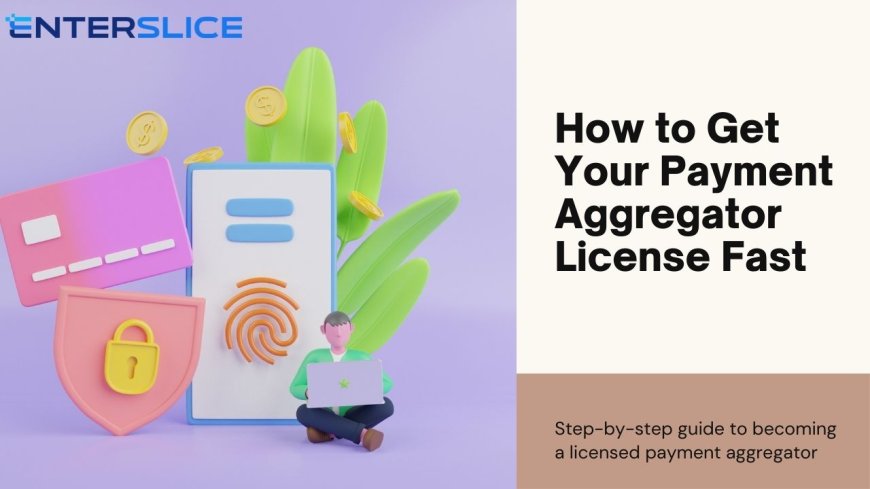Is Your Business Ready for a Payment Aggregator License? Key Considerations

In the digital age, having the ability to process payments efficiently can make or break a business. A Payment Aggregator License in India can help your business by enabling you to process transactions on behalf of other businesses. But before diving into the application process, it’s crucial to evaluate if your business is truly ready. Here’s a simple guide to help you determine if you're prepared for a Payment Aggregator License.
1. Understand the Basics of a Payment Aggregator License
A Payment Aggregator License, issued by the Reserve Bank of India (RBI), allows you to collect and transfer payments from customers to merchants. It’s essential to understand that obtaining this license involves complying with various regulations and meeting specific requirements.
2. Check Your Business’s Financial Health
One of the first things to assess is your business’s financial stability. You’ll need to show that your business can handle the financial responsibilities that come with processing payments. This includes having sufficient capital to manage transaction volumes and potential risks.
3. Evaluate Your Technological Capabilities
To manage payments effectively, your business needs robust technology. Ensure that you have the necessary infrastructure in place, such as secure payment gateways and fraud detection systems. Your technology should be able to handle a high volume of transactions safely and efficiently.
Read also: Overview of Prepaid Wallet License
4. Assess Compliance with Regulatory Requirements
The RBI has strict guidelines for Payment Aggregators. Make sure your business can meet these requirements, including data protection standards and anti-money laundering measures. Review the regulatory guidelines thoroughly to ensure your business is compliant.
5. Prepare for Due Diligence
The RBI will conduct a thorough due diligence process before granting a license. Be ready to provide detailed information about your business operations, financial status, and compliance measures. Having all necessary documentation and records in order will help speed up the process.
6. Understand the Costs Involved
Obtaining and maintaining a Payment Aggregator License comes with costs. These include application fees, compliance costs, and ongoing operational expenses. Make sure you have a clear understanding of these costs and how they fit into your business budget.
7. Consider Your Business Model
Evaluate whether a Payment Aggregator License aligns with your business model. If you plan to handle payments for other businesses or expand your services, this license could be a good fit. However, if your business primarily focuses on direct consumer transactions, you might need a different solution.
8. Review Your Risk Management Strategies
Handling payments involves managing various risks, including fraud and chargebacks. Ensure that your business has effective risk management strategies in place. This includes having secure payment systems and procedures for handling disputes.
Read also: Who is a Merchant Banker?
9. Plan for Scalability
As your business grows, so will your payment processing needs. Consider if your current systems and processes can scale with your business. A Payment Aggregator License should support your growth rather than hinder it.
10. Seek Professional Advice
Navigating the application process for a Payment Aggregator License can be complex. Consulting with legal and financial experts can provide valuable insights and help ensure that you meet all requirements.
Conclusion
Getting a Payment Aggregator License is a significant step for any business looking to handle payments efficiently. By carefully considering your business’s financial health, technology, compliance, and risk management strategies, you can determine if you’re ready to apply for this license. Being prepared will not only streamline the application process but also set your business up for success in the payment processing world.
What's Your Reaction?





















